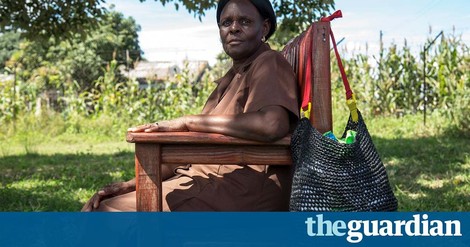Your podcast discovery platform
Curious minds select the most fascinating podcasts from around the world. Discover hand-piqd audio recommendations on your favorite topics.

piqer for: Global finds
Ciku Kimeria is a Kenyan author "Of goats and poisoned oranges" - (https://www.amazon.com/goats-poisoned-oranges-Ciku-Kimeria-ebook/dp/B00HBBWPI6), development consultant, adventurer and travel blogger (www.thekenyanexplorer.com). She writes both fiction and non-fiction focusing on African stories that need telling. She has worked on diverse pieces for various international and local publications including Quartz, Ozy, The East African etc. She has travelled to 45 countries – 16 of them in Africa. 153 countries to go and 63 territories!
"Of goats and poisoned oranges" has been extremely well received in Kenya and beyond. It tells the story of a Kenyan middle aged power couple and their complicated marriage. The novel explores issues of greed, revenge, betrayal and murder. It runs from the 1960s to 2013. It has been described as “Wicked, funny, poignant, wacky, human, a big ball of fun and danger”, “A unique and captivating book”, “Fun and intriguing”, “Impossible to put down once you start reading.”
She recently moved to Dakar, Senegal from Kenya to work on her second novel. She also works at as the Africa Communication Manager at a leading global strategy consulting firm.
She holds a B.S. in Management Science from MIT with minors in Urban Planning and International development studies.
Zimbabwe's Innovative Solution To A Critical Shortage Of Pyschiatrists
When a country with a population of 15.6 million people has only 13 psychiatrists, what can be done to help the millions struggling with mental illness? Dr Dixon Chibanda came up with an innovative alternative of training trusted grandmas to serve as therapists. To date, the grandmas have been able to reach 27,000 people suffering from depression and other mental disorders.
There is still a lot of stigma against people suffering from mental illness in Africa. Growing up in Nairobi, I remember the one catch-all term that was used to explain any sort of mental illness was "madness". It was not rare for families to hide family members who suffered from mental illness or even sometimes to abandon them if they felt they were not in a position to take care of them (financially, physically, emotionally, etc.)
Acceptance of mental illness as a medical condition is still a novel idea to some — most would rather believe that it is a form or curse or possession. Public facilities for treating those with mental illness are few, typically underfunded, understaffed and struggling to provide the bare minimum of services. Getting proper treatment for mental illness is still the preserve of those who can afford private treatment.
That is why this article resonates with me. In a country where one in four people suffer from mental illness, the friendship bench project might be the only lifeline for millions who need help. Of course the ideal situation would be for the country to have more than 13 psychiatrists, but in the absence of that it's heartwarming to see how local solutions are being sought to help those in need.
